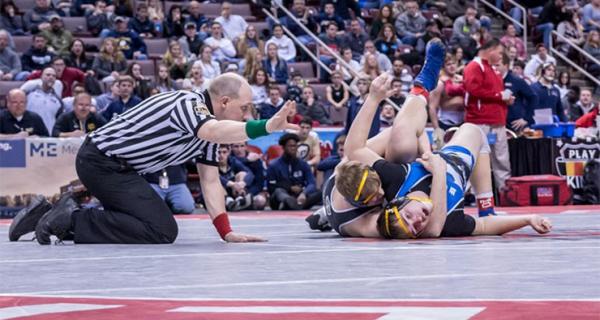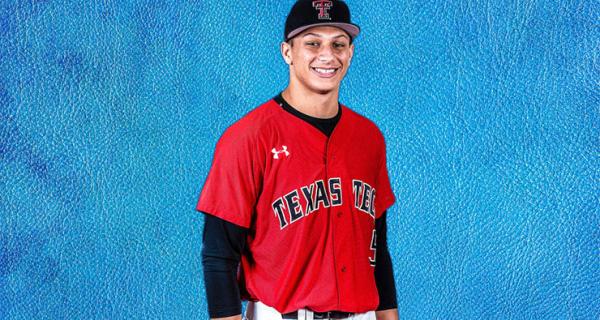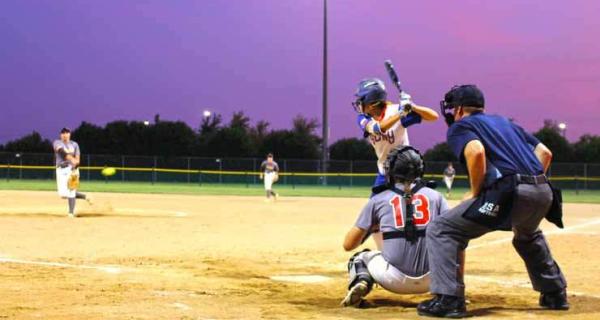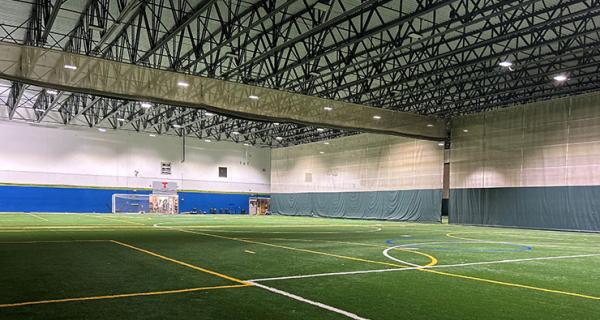Janis Schmees Burke on Managing the Heat of Houston and Harris County
The Harris County – Houston Sports Authority is uniquely positioned as a sports commission that owns sports stadiums and manages over a billion dollars in bond debt service.
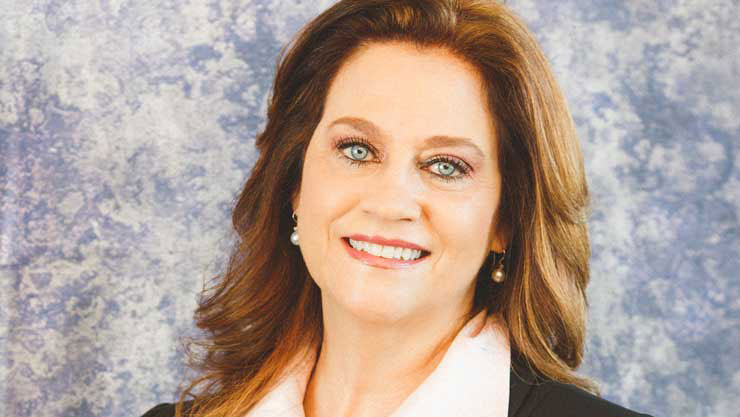
Janis Schmees Burke, CEO of the Harris County—Houston Sports Authority, is the first to joke about how things are handled in her Texas county, even when it comes to the organization’s name.
“I know it’s a long name,” Burke says. “But we love our county as much as our city, so we list both names in alphabetical order.”
Unlike other sports commissions around the country, the Harris County—Houston Sports Authority is a stand-alone government agency that oversees a little over $1 billion in bond debt service for the stadiums in its county. It is the landlord to professional teams, including Minute Maid Park, home to the Houston Astros; Toyota Center where the Houston Rockets play; BBVA Compass Stadium for the MLS Houston Dynamo and the NWSL Houston Dash; and NRG Stadium that hosts the NFL’s Houston Texans and the Houston Livestock Show & Rodeo.
State legislation in Texas gave the Harris County—Houston Sports Authority the ability to exist as a sports venue district that collects hotel and car rental taxes as well as rent from the teams and other revenue streams.
“It’s complicated,” Burke says with a laugh. “We are a unique organization.”
A League of Its Own
Unlike other sports commissions, Harris County Houston—Sports Authority’s 13-member board is created through both its city and county entities. Houston’s mayor appoints six members, per city council approval, and the Harris County Commissioners Court appoints another six members. Together, the city and county officials then select the board chairman.
For more than a decade, Burke has been leading all of it.
“A big part is just making sure the buildings remain state-of-the-art and all the bonds get paid,” Burke says. “So we have a whole finance team that oversees that since we have revenue streams flowing in from different points, including a portion of naming rights.”
That oversight means if for some reason, the authority doesn’t collect the taxes as projected or if the money isn’t coming in the way it’s intended to, it doesn’t affect the county or city finance ratings, Burke says.
It also creates an interesting dichotomy for how sports venues are built, sponsored and operated.
“We keep our ear to the ground to understand the trends in sports,” Burke says. “Many times the county or city will call us to the table and say, ‘Hey, we have a piece of property. What do you think we should do to develop it?’”
As a result, Burke says the Harris County—Houston Sports Authority has been able to help guide plans to build the world's largest skateboard park in the 78,000-sq.-ft. North Houston Skate Park. Nearby, the authority is also building the North Houston Bike Park, a 30-acre extreme sports complex, which will host the 2020 UCI BMX World Championships. The park includes bike trails through the woods, concrete vert features, an outdoor events space, pump tracks and a tot track as well as BMX Race track.
“We will help oversee the BMX park, programming and sponsorships, all the way through the 2020 championships,” she says. “We did that because of our expertise to help them get up and running because, with the world championships, we didn't want Coke to be the main park sponsor if Pepsi was the world sponsor, etc.”
Like Burke’s work, her path to Houston’s sports world has been unconventional. During her time as Metro Detroit CVB’s director of sales and marketing, the CVB started a sports commission. Burke then served as president of Hershey-Harrisburg Regional Visitors Bureau where she started a sports market segment. In San Antonio, she spent two years as the acting executive director of San Antonio CVB, which helps funds San Antonio Sports, the city’s nonprofit sports commission.
Even though sports weren’t a main focus on Burke’s career, until moving to Houston in 2006, “it has always been part of what I’ve done,” she says.
Breaking Glass
When former NFL player and NCAA executive, Oliver Luck, who was a quarterback for the NFL Houston Oilers, left his position as the CEO of the Harris County—Houston Sports Authority to run the MLS Houston Dynamo team, Harris County—Houston Sports Authority had to make a decision: Should it sit back and hope that people choose the destination or be proactive like a lot of other big cities and have a specific sports marketing initiative?
“Because we feed off the hotel and car taxes, the more people we bring in, the more we are helping ourselves to pay stadium bonds off,” Burke says. “That was the genesis in how we evolved into sports marketing.”
A national search was done. Burke, the first woman to hold the position since the inception of the organization in 1997, was recruited and hired as Luck’s replacement.
When Burke was interviewing, the hiring team told her the city and county “had a good product,” but they needed somebody to bolster its image on the national and international sports map.
During Burke’s tenure, Houston has been awarded a variety of major sporting events, including the 2011, 2016 and 2023 NCAA Men’s Final Four, Olympic trials, numerous national and world championships, the AAU Junior Olympics, professional All-Star games, and the World Transplant Games. One of the annual events Burke is most proud of is bringing in Paralympic coaches so kids can try out different wheelchair sports.
“They get to try all these sports they wouldn’t normally get to do because these wheelchairs are between five and eight thousand dollars apiece,” Burke says. “Parents aren’t going to buy those wheelchairs unless they're sure their child has an interest in and has the talent to do it. It helps kids that are otherwise bound to a wheelchair feel the freedom to compete.”
On a larger scale, Burke also helped to secure the 2021 World Transplant Games, which will return to the U.S. after a 41-year hiatus.
With Texas Medical Center, the world’s largest medical complex located in Houston, Burke says the medical community approached her and asked for help putting a bid together to help living donors and their recipients compete.
Despite the huge medical presence, they quickly realized that Texas was second to last on the national donor registry list. While most states have one organ procurement organization, Texas has three because of the state’s size, and back then, people weren’t being asked when they signed up for their driver’s licenses if they’d like to be a donor.
In their winning bid, Harris County—Houston Sports Authority said it would use the games as a platform to get the message out and to “get everybody around the same table to work on this event” to increase the organ donor registry.
“It was around 2 million at the time when we started, and now Texas is over 11 million,” Burke says. “It’s the result of increasing awareness and working together with all these different organizations. A sporting event is now saving lives.”
Getting Personal
As an athlete, Burke hoped to compete in the Olympics as a diver. As a teenager, Burke trained as a 5-meter and 10-meter platform diver, flying to Indiana during the summers to train with famous diving legend Hobie Billingsley, Indiana University’s diving coach from 1959 to 1989, who is in the International Swimming Hall of Fame.
While in high school, Burke’s mom got cancer. A couple of years later, she died at the age of 42.
“I was the oldest daughter and it was just me and my younger brother,” says Burke, who went to Stevenson High School in Sterling Heights, Michigan. “So I gave that dream up to help take care of him.”
Even though life took a different path than she intended, Burke, who turns 57 in May 2020, is grateful to now work in sports again.
“I just love the business of sports,” Burke says. “I love the quality of life element it brings to a destination. I like that it changes lives. There’s a lot of student-athletes who get scholarships to college or say, ‘if it weren’t for sports, I would have been in trouble with my life.’”
When she’s not working, Burke loves to water and snow skiing or seeing her husband, Peter Burke, a CEO who works in Harrisburg, Pennsylvania. Burke has four children and he has two children from previous marriages. They have six grandchildren between the two of them.
“Honestly, in the downtime, I want to either fly to Pennsylvania to be with my husband or hang out at home in Texas. He flies here or we meet somewhere,” says Burke. “Hanging at home with him is my favorite thing just because we don't get to come home to each other every night like most married couples.”


